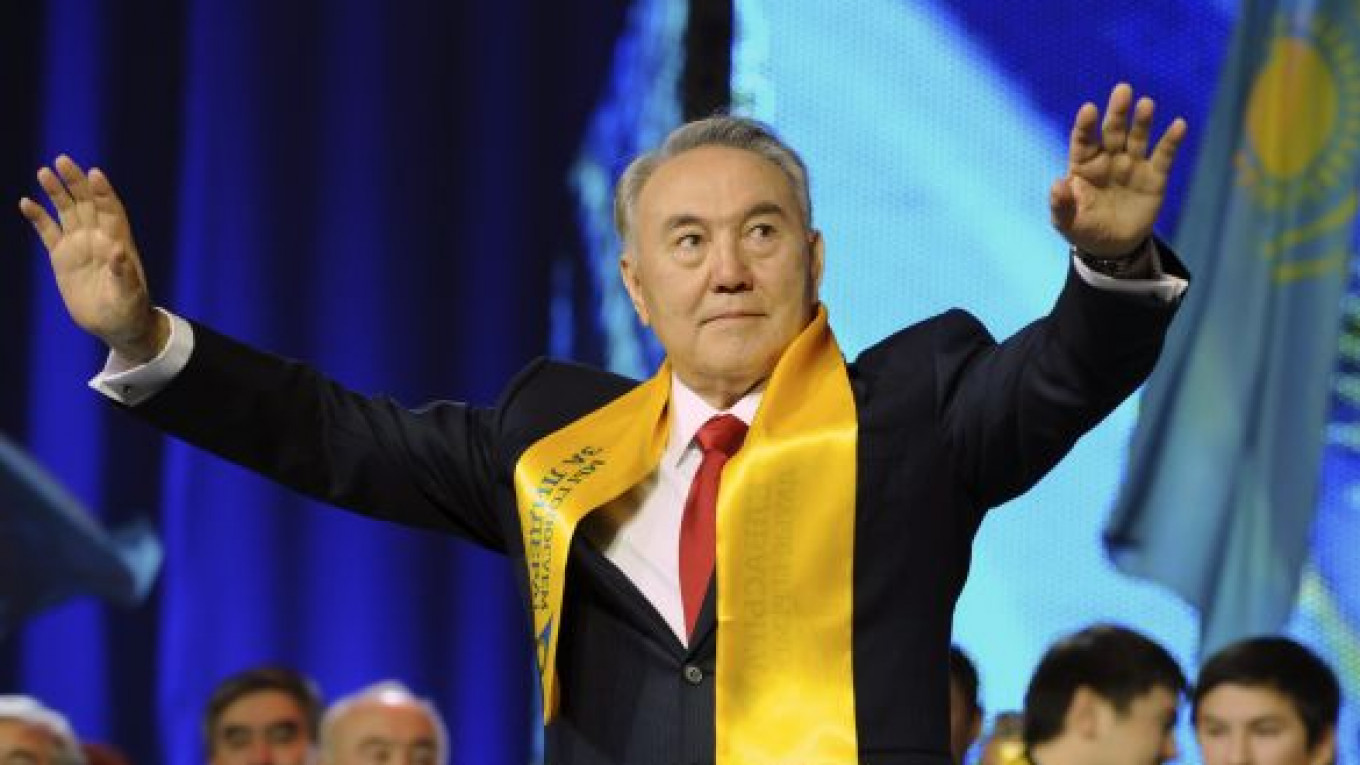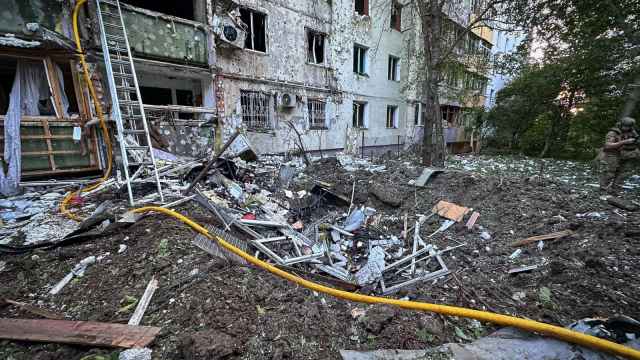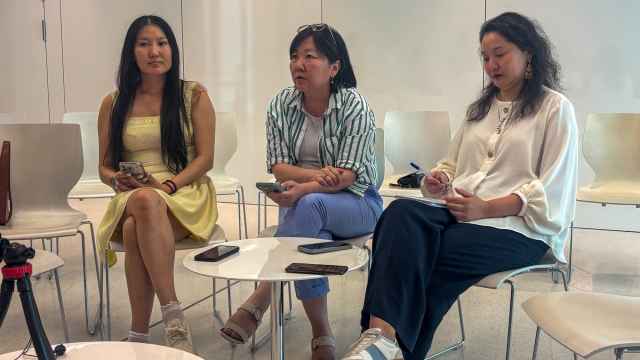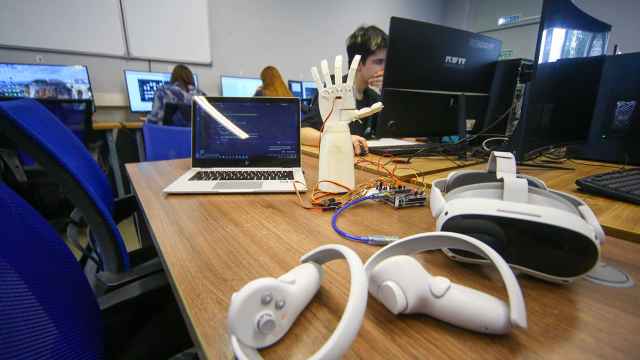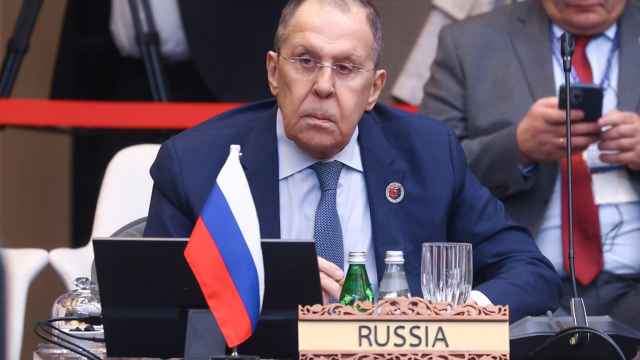ASTANA, Kazakhstan — A promise of stability in a volatile region won veteran Kazakh leader Nursultan Nazarbayev an overwhelming victory on Monday in a snap presidential election criticized by European monitors for irregularities.
Nazarbayev, 70, won another five years at the helm of Central Asia's largest economy by pledging peace and economic growth in the predominantly Muslim country, where the echo of popular revolutions across the Arab world is almost inaudible.
The former steelworker won a resounding 95.5 percent of votes to surpass the 91.2 percent he received in the last presidential vote in 2005.
But he faces a challenge from critics and criticism from the West for his authoritarian methods. The Organization for Security and Cooperation in Europe, chaired last year by Kazakhstan, said it had witnessed little progress on promised democratic reform.
"Regrettably, we have to conclude that this election could and should have been better," said Daan Everts, head of the long-term election observation mission deployed by the OSCE Office for Democratic Institutions and Human Rights.
By winning an election devoid of any challenge — one of three opposing candidates even voted for him — Nazarbayev has tightened his grip on the vast, oil-rich country of 16.4 million people that covers an area five times the size of France.
"This turnout of almost 90 percent and more than 90 percent of your support for me is a sensation for Western states," an upbeat and emotional Nazarbayev told thousands of mainly young supporters in a sports complex in the windswept capital, Astana.
His supporters waved the national flag and chanted "Nursultan! Kazakhstan!" and "We won!" Many wore specially printed T-shirts with the logo in English: "I Love President!"
The per capita gross domestic product in Kazakhstan, at more than $9,000, has risen 12-fold since 1993 and is on a par with Malaysia. Living standards are the highest in Central Asia, where poverty, ethnic tension, radical Islam and the drug trade unsettle neighbors.
"We have shown that if elections usually divide a nation into various party blocs, ours has only united us; while there is bloodshed and ethnic strife in the outside world, we stand united — all ethnic groups and religions," Nazarbayev said.
"If elsewhere they cut jobs and halt industrial output, we launch new factories and open new jobs; if somewhere they cut pensions, we raise them; if somewhere they cut wages, we boost them," he said to the rapturous applause of his supporters.
While most investors agree Nazarbayev's re-election will preserve stability, it does nothing to answer the question of who will eventually succeed him.
"The question of succession remains the wild card and the largest single risk to investments in Kazakhstan in the mid to long-term," said Milena Ivanova-Venturini, deputy head of global research at investment bank Renaissance Capital.
Nazarbayev has built strong ties with China and Russia, whose President Dmitry Medvedev phoned Nazarbayev to congratulate him on his win.
Medvedev offered his "cordial congratulations on the successfully conducted elections" and on the incumbent's "more than convincing victory," the Kremlin said in a statement.
Nazarbayev has said he will rule for as long as his health and his people will allow. Some political analysts say he could use his next five years in office to groom a pliant successor.
The OSCE's election monitoring arm expressed hope that, by the time of parliamentary elections scheduled for next year, Kazakhstan would implement more democratic reforms.
"Kazakhstan should be proud of its economic growth but this election is a sign that, unfortunately, their democratic institutions have not grown at the same pace," said Tonino Picula, head of the OSCE's short-term observation mission.
Everts said the OSCE, which stationed more than 300 observers across the country, had witnessed and received reports of "undue pressure" to vote in state institutions such as universities, hospitals and military camps.
Official turnout was 89.9 percent in the election, called by Nazarbayev almost two years before his term was due to end.
"We have physical examples of instructions from above — from supervisor to subordinates — to make sure that everyone in that institution votes," Everts said. "And if no 100 percent turnout is achieved in that institution, severe penalties will follow."
He added that he believed this could have been a result of overzealousness among local officials, rather than direction from the top of government.
The fragmented opposition, which had little time to mobilize its forces, denounced the early election as a farce.
A Message from The Moscow Times:
Dear readers,
We are facing unprecedented challenges. Russia's Prosecutor General's Office has designated The Moscow Times as an "undesirable" organization, criminalizing our work and putting our staff at risk of prosecution. This follows our earlier unjust labeling as a "foreign agent."
These actions are direct attempts to silence independent journalism in Russia. The authorities claim our work "discredits the decisions of the Russian leadership." We see things differently: we strive to provide accurate, unbiased reporting on Russia.
We, the journalists of The Moscow Times, refuse to be silenced. But to continue our work, we need your help.
Your support, no matter how small, makes a world of difference. If you can, please support us monthly starting from just $2. It's quick to set up, and every contribution makes a significant impact.
By supporting The Moscow Times, you're defending open, independent journalism in the face of repression. Thank you for standing with us.
Remind me later.


